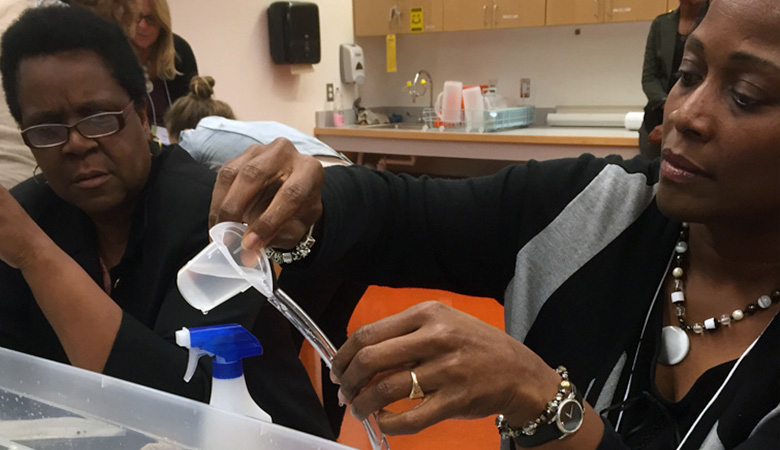
Challenge
School policies for young emergent multilingual learners have historically prioritized English proficiency as a prerequisite for learning in academic content areas. But new studies are showing that math, science, and social studies can be rich contexts for oral language development in a first and second language, and responsive instruction can also help emergent multilingual students develop critical literacy skills.
EDC’s Literacy and Academic Success for English Learners through Science (LASErS) project applied this content-rich approach in Hartford, Connecticut, a city where 36 percent of residents identify Spanish as their primary language and 18 percent of students are formally identified as English learners. By using science as a context for language and literacy instruction, LASErS boosted the academic success of pre-K through grade 1 emergent multilingual learners in Hartford, and the model is being used in a new project.
Key Activities
Through LASErS, EDC’s early learning experts carried out the following activities to support literacy and language development for emergent multilingual learners:
- Facilitated intensive, face-to-face professional learning for pre-K and grade 1 teachers focused on fueling the science and oral language development of emergent multilingual learners
- Trained school-based instructional coaches to promote teachers’ application and integration of newly learned science and language teaching approaches and strategies
- Engaged families as partners through family science events held at school and the Connecticut Science Center and with family science toolkits that extended science exploration into students’ homes
Impact
Findings from an evaluation of LASErS revealed evidence of promise for the program, including positive impacts on the test scores of grade 1 emergent multilingual students. The evaluators also found that LASErS:
- Increased capacity of approximately 99 teachers to engage emergent multilingual students and other students in high-quality literacy and science learning
- Increased capacity of nine coaches to support teachers of emergent multilingual students
- Improved speaking, listening, reading, writing, language, and science skills for 1,980 students—792 emergent multilingual students and 1,188 other students
- Promoted greater family engagement with school and community resources
- Improved teachers’ ability to facilitate a language-rich environment, support scientific learning, and engage students in the learning process when school leaders prioritized LASErS
Learn More
PROJECT DIRECTOR

DURATION
FUNDED BY
PARTNERS
The Hartford Foundation for Public Giving; Connecticut Science Center; the Children's Museum
